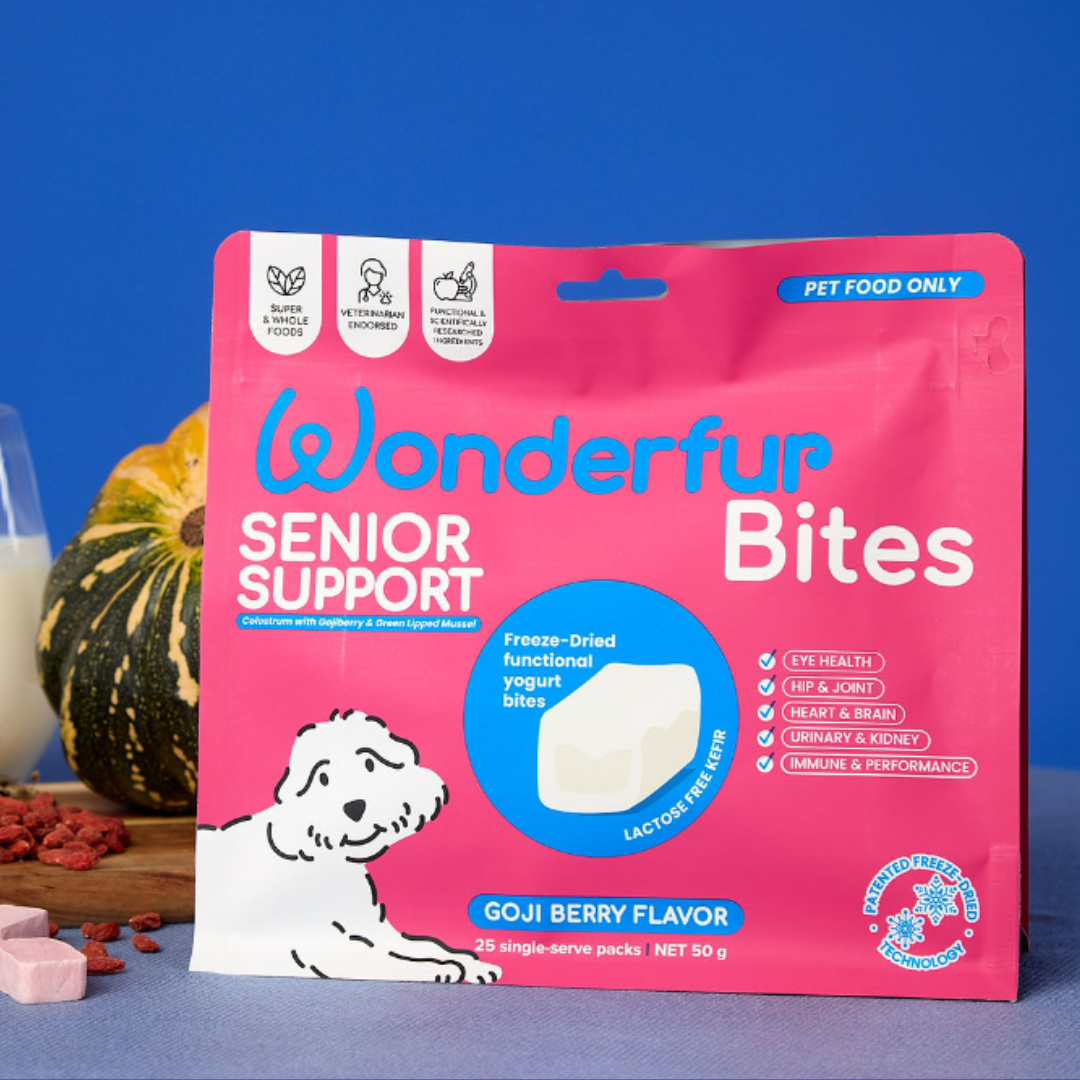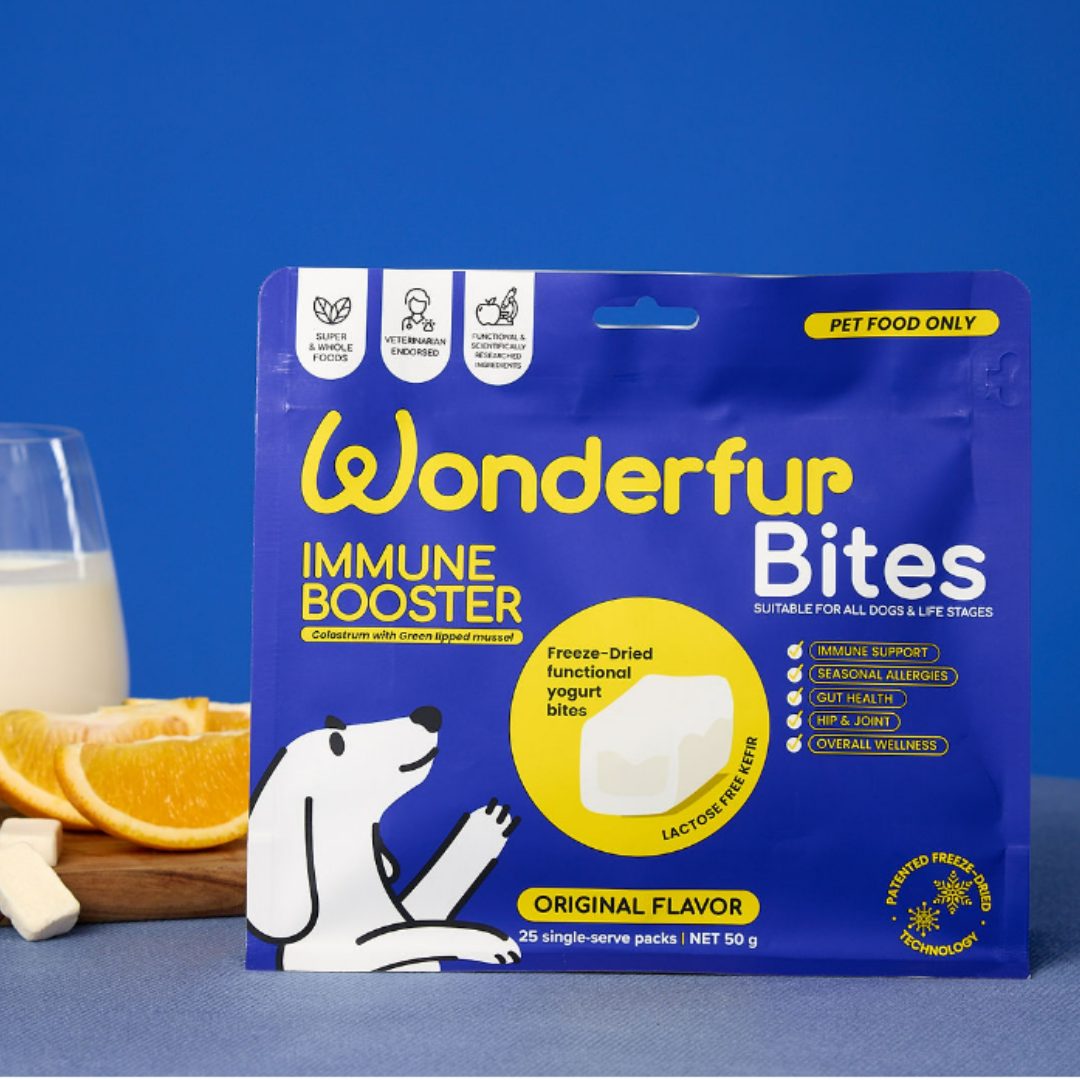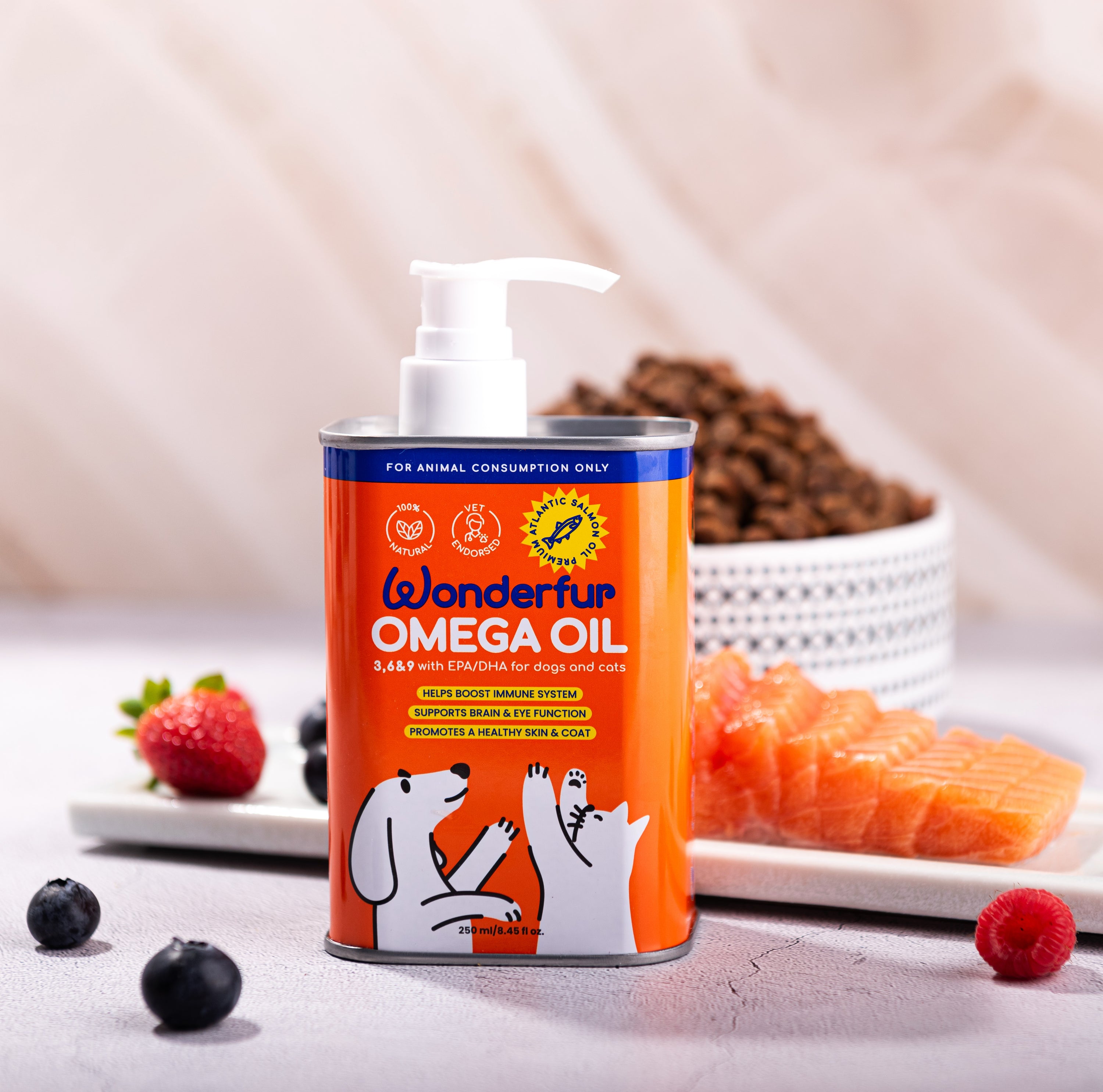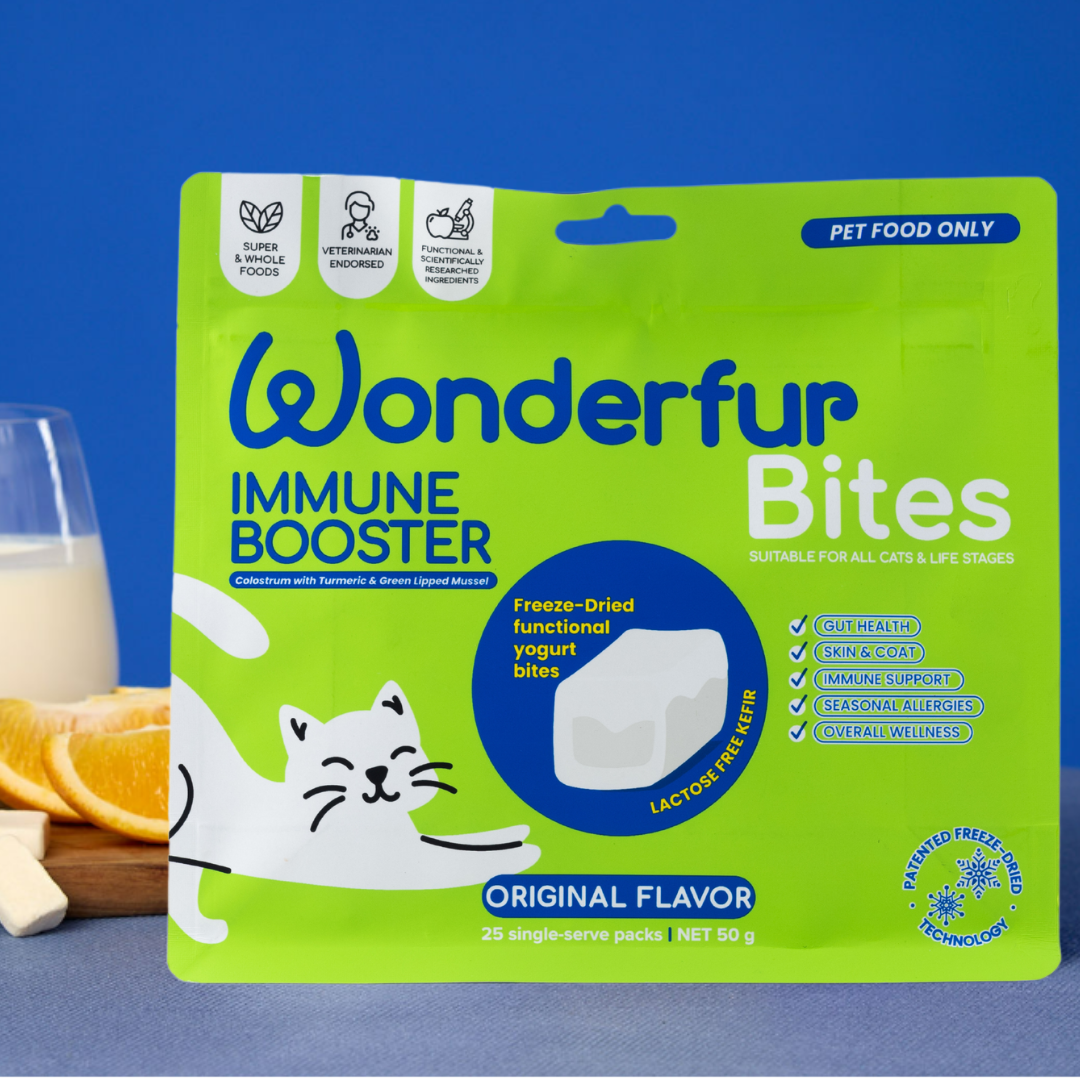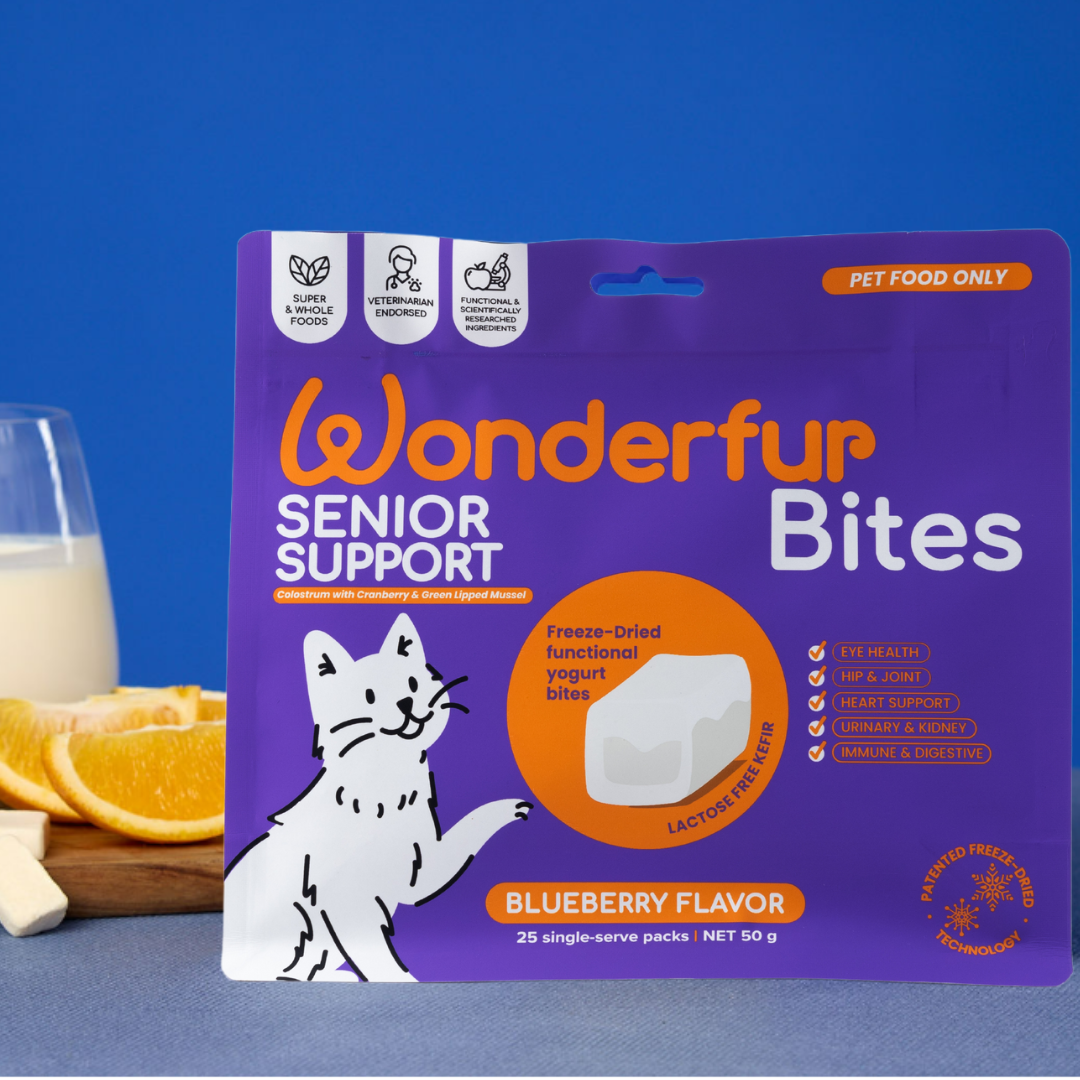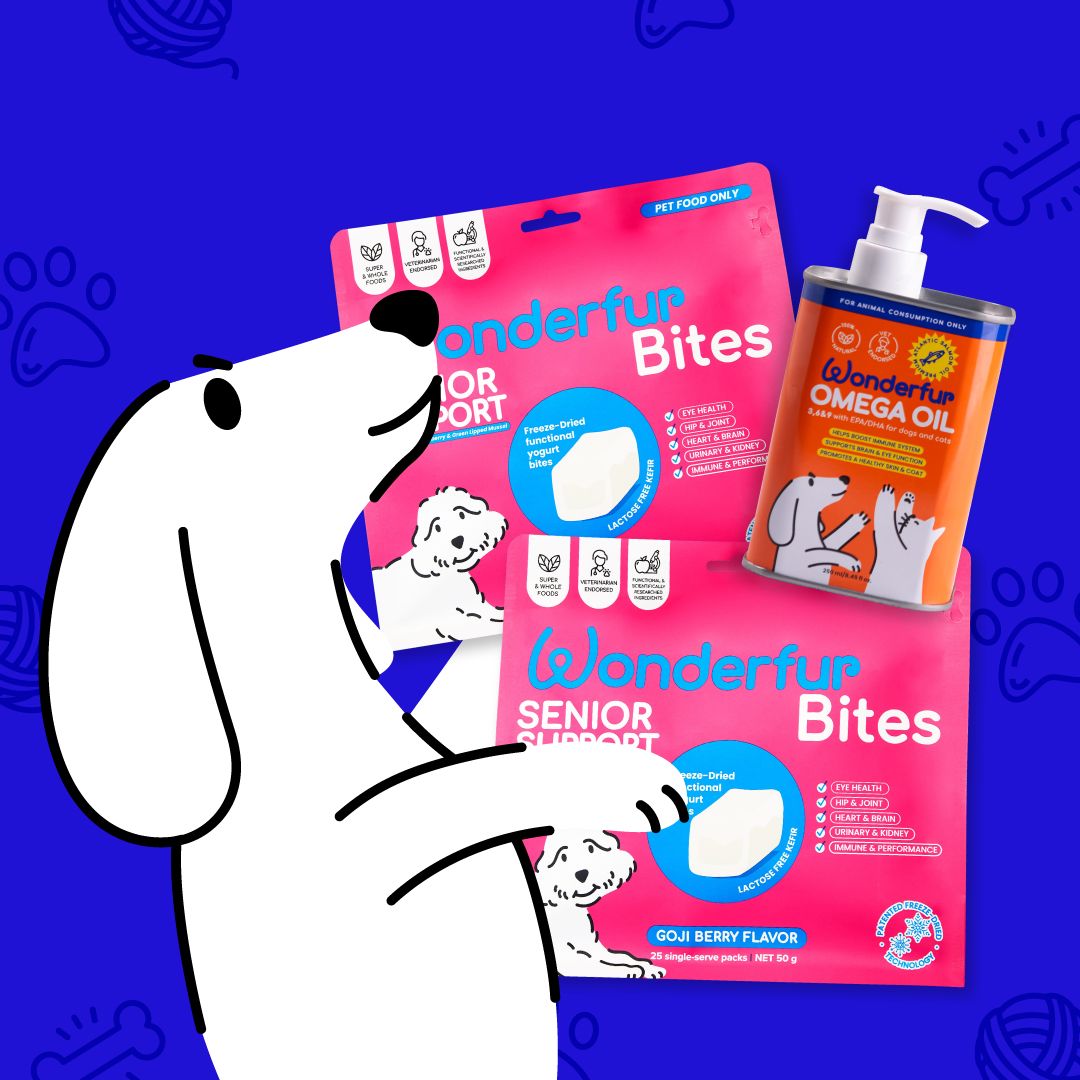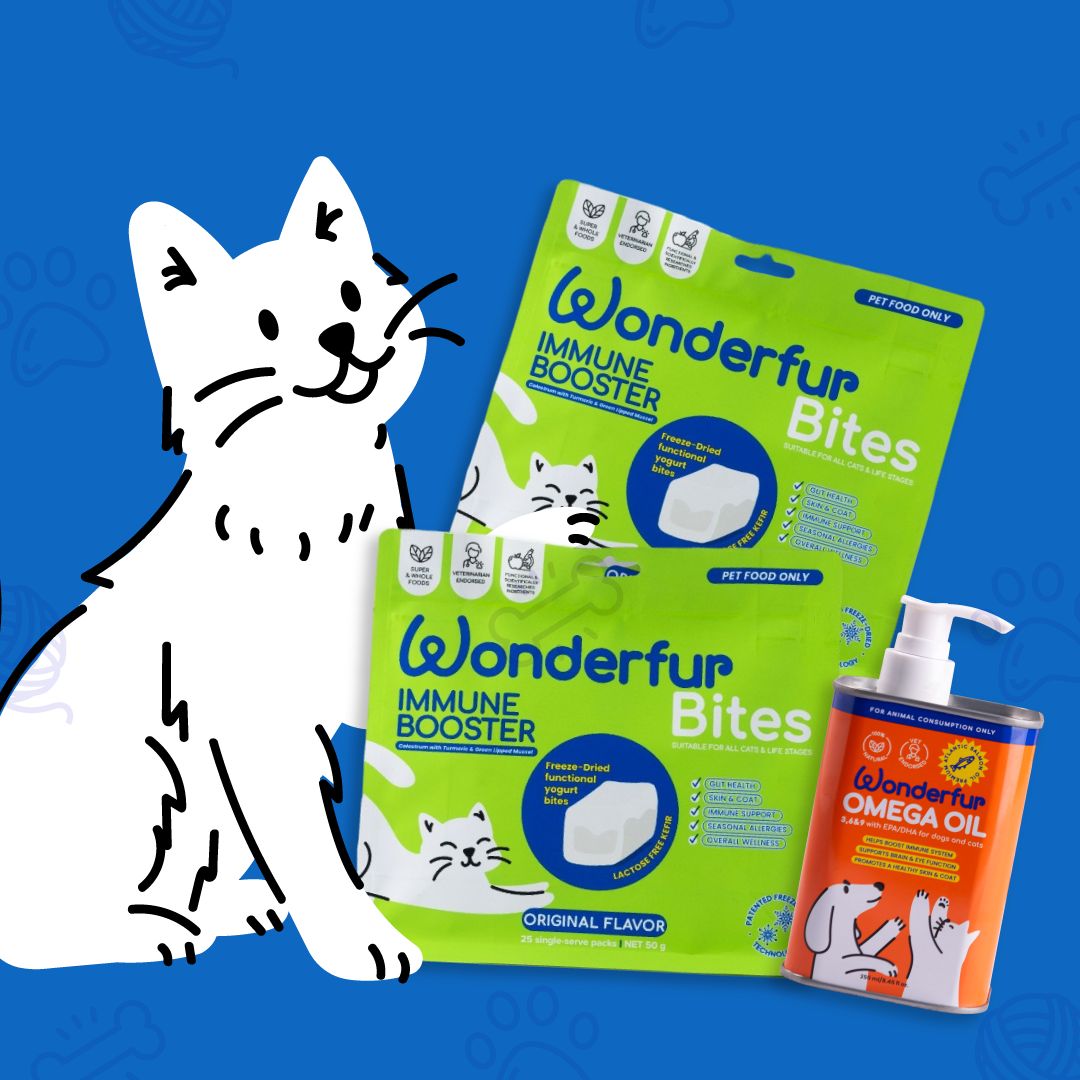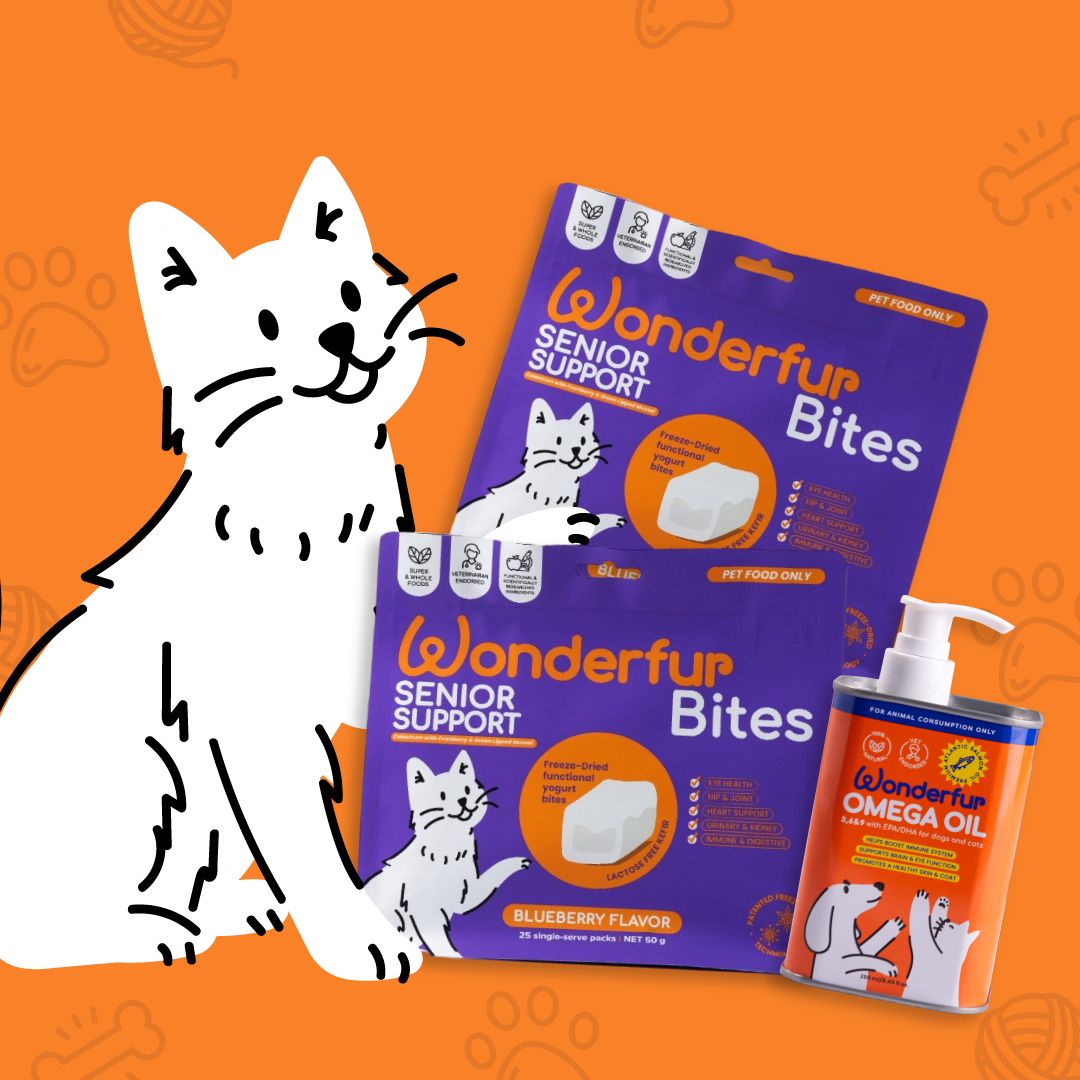Can dogs eat marshmallows? (and what to do instead)
Struggling with a “my dog ate X” moment?
Wondering if marshmallows are okay… and how to keep tummies calm?
Short answer:
-
Regular marshmallows: not toxic, but pure sugar → empty calories, tummy upset.
-
Sugar-free marshmallows: hard no if they contain xylitol (toxic to dogs).
-
The smarter move: build daily gut resilience with an immune booster for dogs (probiotics + gentle superfoods).
Why marshmallows aren’t a good dog treat
- All sugar, no nutrients → weight gain without benefits.
- GI upset risk: soft stool, gas, vomiting.
- Sticky texture → choking risk for gulpers.
-
Sugar-free danger: xylitol can cause rapid hypoglycemia.
If your dog already ate some: do this
Step 1: Check ingredients
-
Look for xylitol (also called birch sugar).
-
If present → call your vet immediately.
Step 2: Track amount + timing
-
A couple of regular minis? Usually mild.
-
A handful or any sugar-free? Monitor closely.
Step 3: Watch 24–48 hours
-
Red flags: repeated vomiting, diarrhea, lethargy, wobbliness.
Step 4: Gentle care
-
Fresh water.
-
Bland meal (vet-approved).
-
Add probiotics to support stool quality.
The real win most posts miss: everyday gut resilience
A durable microbiome = fewer “uh-oh” days.
What I use and recommend:
-
Daily probiotics (kefir-based = broad, live strains).
-
Prebiotic fibers to feed the good bugs.
-
Superfoods like pumpkin, blueberry, and colostrum for gentle support.
Put it together and you’ve basically got an immune booster for dogs—one bite, done.
How to add it (simple routine)
Start low and slow for a few days.
Feed with meals.
Keep water available.
Track two things: stool quality and itch/lick frequency week to week.
Pro tip: Pair with an omega-3 (EPA/DHA) topper for skin barrier support from the inside out.
The takeaway
Skip the marshmallows; build resilience instead. A simple immune booster for dogs keeps bellies happier, skin calmer, and you less worried after the next picnic raid.

